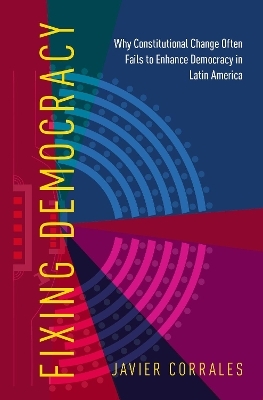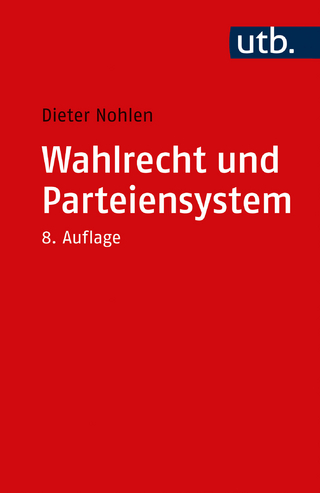
Fixing Democracy
Oxford University Press Inc (Verlag)
978-0-19-086890-1 (ISBN)
The study of institutions, a core concept in comparative politics, has produced many rich and influential theories on the economic and political effects of institutions, yet it has been less successful at theorizing their origins. In Fixing Democracy, Javier Corrales develops a theory of institutional origins that concentrates on constitutions and levels of power within them. He reviews numerous Latin American constituent assemblies and constitutional amendments to explore why some democracies expand rather than restrict presidential powers and why this heightened presidentialism discourages democracy. His signal theoretical contribution is his elaboration on power asymmetries. Corrales determines that conditions of reduced power asymmetry make constituent assemblies more likely to curtail presidential powers, while weaker opposition and heightened power asymmetry is an indicator that presidential powers will expand. The bargain-based theory that he uses focuses on power distribution and provides a more accurate variable in predicting actual constitutional outcomes than other approaches based on functionalism or ideology. While the empirical focus is Latin America, Fixing Democracy contributes a broadly applicable theory to the scholarship both institutions and democracy.
Javier Corrales is Dwight W. Morrow 1895 Professor of Political Science at Amherst College and obtained his PhD in Government from Harvard University in 1996. He specializes in comparative politics and international relations of Latin America. He has written extensively on economic reforms, democratization, presidential powers, term limits, education policy and international relations. He has been a Fulbright scholar in Bogotá, Colombia, and Caracas, Venezuela. He is on the editorial board of Latin American Politics and Society and Americas Quarterly, and the European Review of Latin American and Caribbean Studies.
Part I: The Argument
1. Introduction: Fixing Democracy
2. The Argument: Power Asymmetries, Constitutions, and Presidential Powers
Part II: Explaining Constituent Assemblies and Presidential Powers
3. Origins: Rise and Death of Constituent Assemblies in Latin America
4. Content: Constitutional Rewrites and Changes in Presidential Powers
Part III: Case Studies
5. Venezuela: Extreme Variations in Power Asymmetries
6. Bolivia: Natural Resources, Demographics, and Reduced Asymmetry
7. Ecuador: When the Opposition Splits
Part III: Power Asymmetry and Self-Dealing
8. Term Limits: Self-Dealing, Power Asymmetries, and Changes to Time in Office
Part IV: Conclusion
9. Conclusion
| Erscheinungsdatum | 23.08.2018 |
|---|---|
| Verlagsort | New York |
| Sprache | englisch |
| Maße | 231 x 155 mm |
| Gewicht | 399 g |
| Themenwelt | Sozialwissenschaften ► Politik / Verwaltung ► Politische Systeme |
| Sozialwissenschaften ► Politik / Verwaltung ► Politische Theorie | |
| Sozialwissenschaften ► Politik / Verwaltung ► Staat / Verwaltung | |
| Sozialwissenschaften ► Politik / Verwaltung ► Vergleichende Politikwissenschaften | |
| ISBN-10 | 0-19-086890-2 / 0190868902 |
| ISBN-13 | 978-0-19-086890-1 / 9780190868901 |
| Zustand | Neuware |
| Haben Sie eine Frage zum Produkt? |
aus dem Bereich


